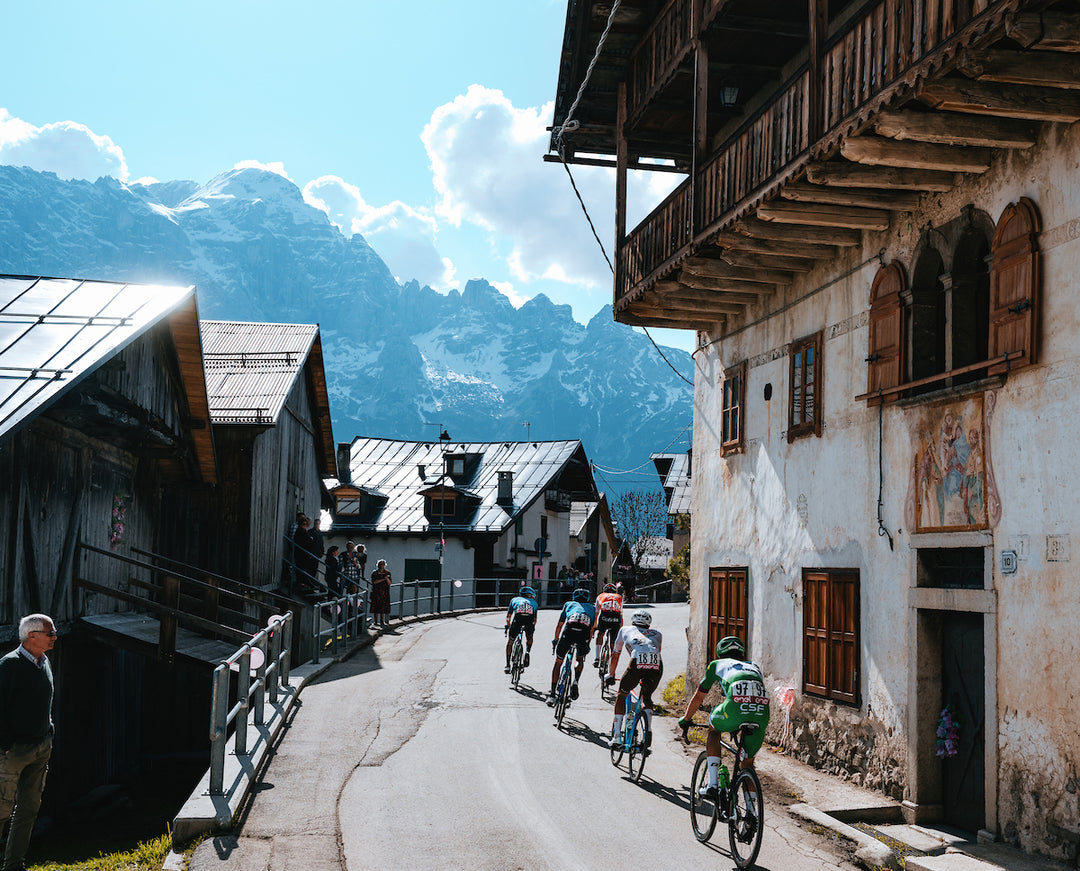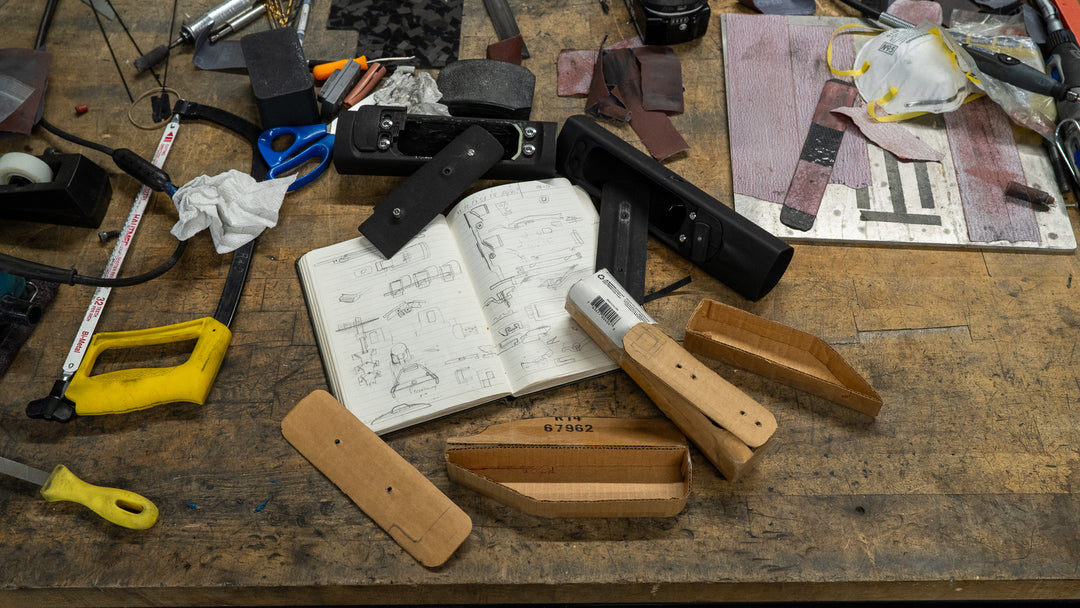How the Pros Prepare for a Triathlon
Written by Jodie Cunnama
Racing as global professional athletes inevitably means traveling with bikes and a lot of gear, usually on a flight or two, and we have to be very self-sufficient. Sponsors in triathlon only tend to have budgets for attending the World Championships so James and I have to take care of our own bikes and organization, pretty much the same as any amateur.
Between us, James is the more skilled bike mechanic and I’m better at logistics, so we’re a good team and that’s why I still try to travel with him even while I’m pregnant. I miss racing very much, the races less so. Living through the preparation, nerves and tension without any control over the race outcome is something that all ‘tri-widows/widowers’ know very well but it is something I could very much live without!
Two days before the race is the last day to ensure the bikes are completely ready to roll, with a spin on the course if possible. Europe is quite bike-friendly for pre-race recces but when the roads are dangerous or the weather unsuitable we try to source a turbo trainer to check gears, bolts, tires, wheels and, of course, spin our legs.
Ironman Frankfurt in Germany is a Continental Championship race and as such one of the five pillars of all Ironman races, only below the Kona World Championships in status. As such, our sponsor CeramicSpeed came to our hotel to fit a new UFO ultra low-friction chain fresh for the race. The chain is at its best for just 300km so we only get these chains fitted a few days before race day. Everything else has to be ready in advance.

James chose to race the ENVE SES 7.8 Disc wheels at Ironman Frankfurt. This is actually an easy choice for him, as they are his go-to wheelset for almost all courses. The balance of aerodynamics, stability and tubeless-ready rims works brilliantly on almost all triathlon challenges and on the day they helped him to his fastest ever bike split.
We are lucky to have worked our way up to a level at which we now have hotels provided by most event organizers. We simply could not afford to stay in 4- or 5-star hotels, nor book a room early enough what with all the swaps and changes of a professional athlete’s schedule through the season. Many professionals rely on, or even favour, home-stays for their races. James has enjoyed a few home-stays while I have always been a little more introverted and prefer to keep to myself in the days before a race. I have slept in some awful rooms in the past as I scraped together enough pennies to go to a race – the room I stayed in prior to winning the Ironman 70.3 World Champs in Clearwater, Florida, USA, was pretty rotten but it was near the start, had a bed, bath and microwave and it clearly did the job for me.
Our hotel room in Frankfurt – provided this time by Ironman Europe – was fairly typical of any room we stay in pre-race, except when I’m racing as well it can look even messier. It isn’t, though; it’s all precisely ordered to prevent mistakes on race day.

Preparing for an Ironman is a mammoth mission in itself. After registration we lay our provided equipment into sections of the room. James’ warm-up, bike and run bags are laid out on the window sill. I put my swim provisions into the morning clothes bag and perhaps reminders to insert various other needs on race morning like a passport for drugs testing, my fully charged bike computer, my bike shoes, sunglasses, maybe a diet drink to make me pee faster in drugs testing, my mobile phone – things that are essential but so easily forgotten when you have eight or nine hours of pain on your mind.
We also have to lay out our nutrition. I use only gels and James a combination of bars and gels. We also use salt tablets, distributed carefully in each swim/bike/run bag. I make James write down batch numbers of everything he is to consume in the race. As long-distance athletes we have no choice but to trust the purity of on-course supplements but we must always be aware that no supplement is absolutely guaranteed uncontaminated. Documentation of the approved substances we use is one step we can make to limit our risk.

The day before the race begins like any other – with coffee! At the breakfast buffet James chooses pancakes and fruit while I would usually try to eat protein as I tend not to do that as near to the race start as James. I eat less often than James; we have fairly different regular diets but we are both very careful at races to limit any risk of stomach upset. We both love coffee, though!
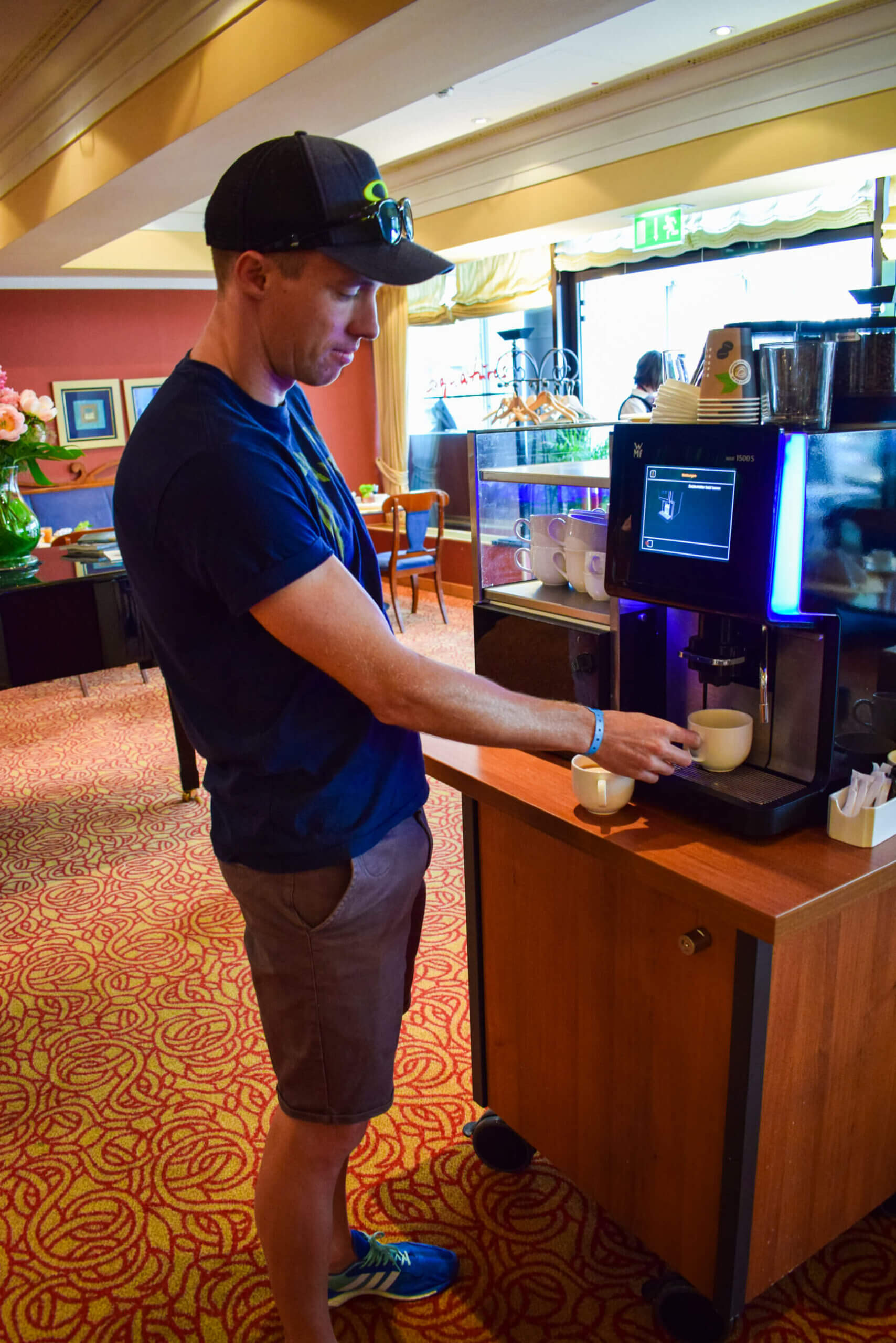
After a good breakfast it’s time for a swim in the local pool for James. He prefers to stick to pools while I always like to go to the lake and test the course. I always say it’s because I will inevitably end up at the front and having to navigate – when he gets fast enough he will know what that responsibility feels like! James and Brett, his coach, worry about tummy issues from open water more than me. I always classify people into tummy or head ills; I have gotten migraines my whole life but rarely get sick from river or sea water.
James rests on return and I leave for a run to let him sleep. We take any leg-up time that we can in the 48 hours before a race: sitting is better than standing, horizontal is better than sitting, sleeping is the best.

Ironman Frankfurt has a split transition which adds to the logistical preparation. Luckily James has transportation for him and his bike out to the T1 lake, about 20km outside of Frankfurt. Bike preparation must be complete before we go to T1 and although nutrition and air can be added in the morning prior to racing, we both like our bikes ready to go and sleeping soundly in T1.

We meet Sarah Crowley (also an ENVE rider) and team for a quick catch-up in reception.
Patrick Nilsson (eventual third place man) shares our car. The talk is light and friendly, unlike the battle for third and fourth that he and James fight the next day.
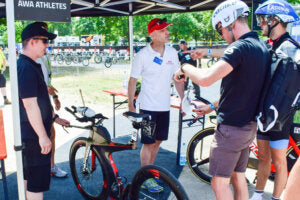


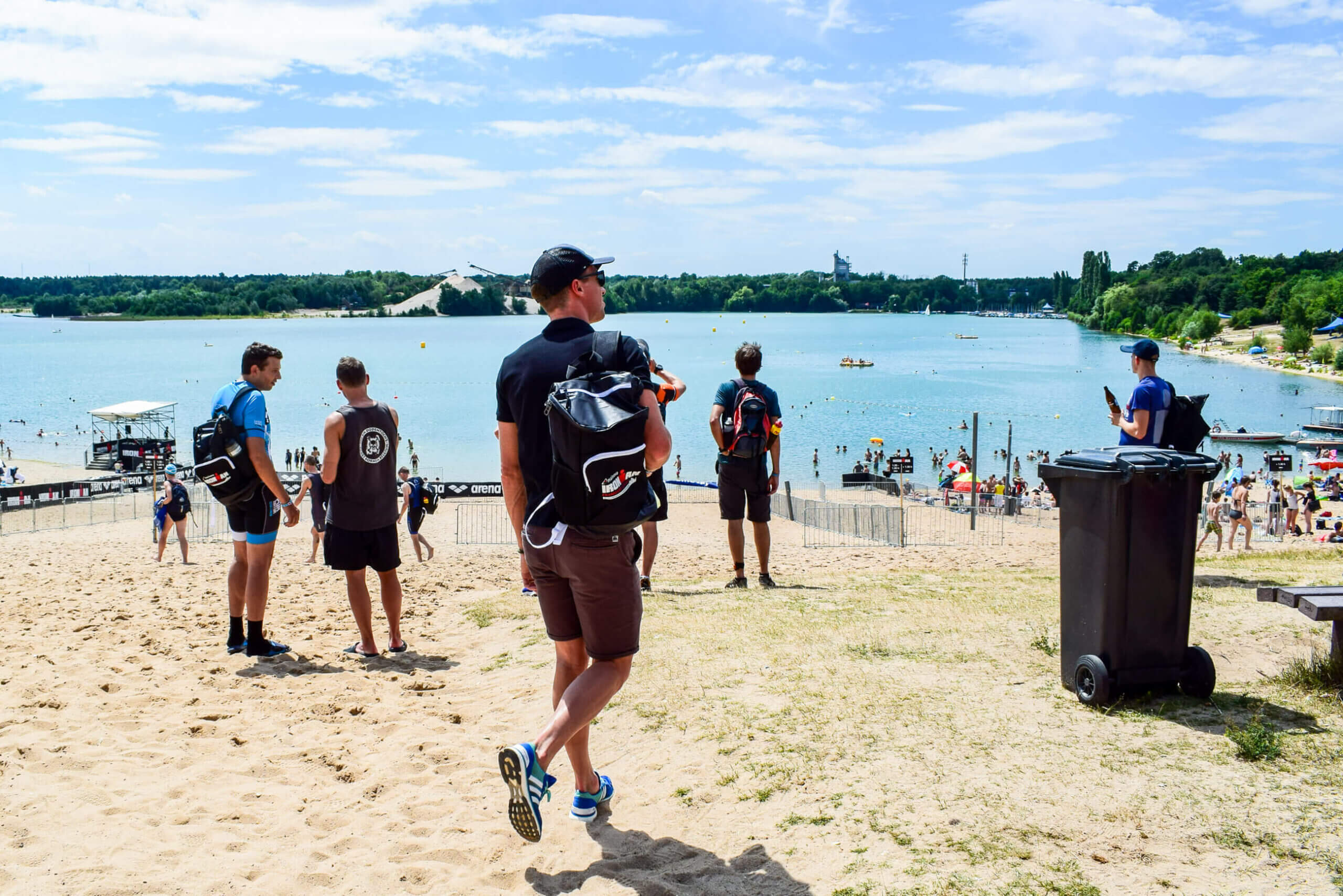
Back at the hotel we rest and watch Diamond League athletics – my choice, James is more of a cycling fan. We both watch a lot of Wimbledon in the next few days, too. Nothing really beats live sport for us. I like watching athletes’ mindset and James loves the action and adrenalin of a good race.

Next we take a short walk along the river to drop off his T2 bag in transition. We grab a simple burger for lunch in a local restaurant on the way back.

We also stop for some ‘Thai Fun’ – of the innocent kind: rice! James gets rice for dinner and for breakfast tomorrow. Neither of us are gluten-free advocates but we have both found rice and chicken is our go-to, no-tummy-issue solution for long, hot races.

With all the preparation done, James heads off to turn his legs over on the riverbank for 30 minutes or so. We train so much that there is a fine balance between resting and moving to maximise the good feeling in our bodies.
I usually eat dinner at 4pm before races but James can do right up to 7pm. He eats chicken fried rice and watches Wimbledon, absorbed in a brilliant Federer performance. I fall asleep at about 8pm and he tells me he followed soon after, although a pregnant women feels nothing in her sleep!
We wake to a 3.30am alarm and James makes coffee and eats rice…again.

Our lift leaves at 4.30am and I hover around James ensuring he has all he needs before the start. I am probably more nervous than James. He hands me his wedding ring, which I wear on my index finger, and kisses me goodbye.
Incredibly, it will only be seven hours and 51 minutes until I get to hug him again. It’s the best ever South African result, a brilliant fourth in one of the fastest races in history and a qualification to Kona. A good day!



